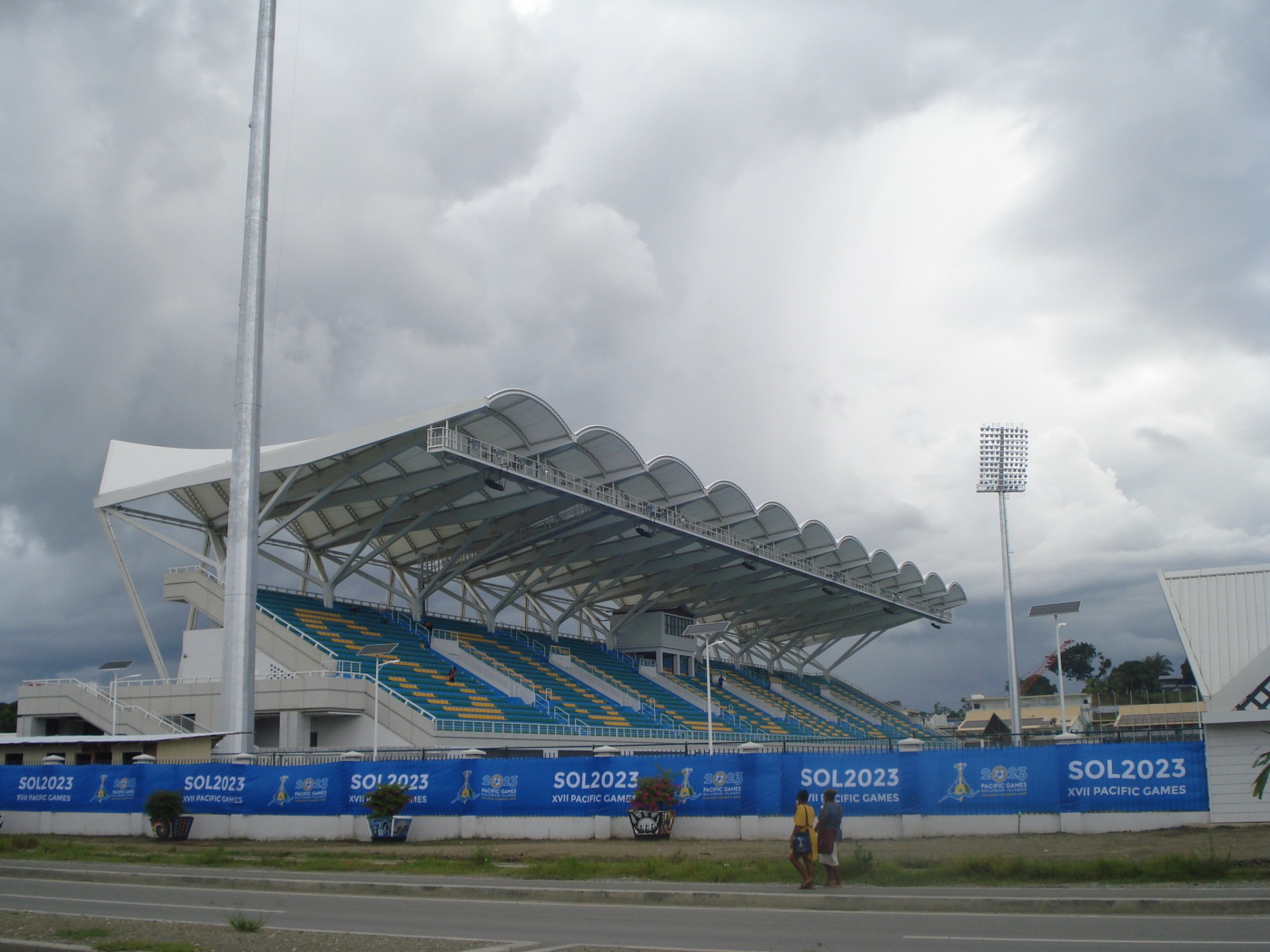Honiara, Solomon Islands – On the highway between the airport and Honiara, the Solomon Islands’ capital, a mammoth sports stadium rises from the ground in the tropical heat like an apparition. The new landmark is, by far, the largest building in the small bustling city that is home to just under 100,000 people.
The 10,000-seater stadium has been built for the Pacific Games, a regional multi-sport event held in a different Pacific Island country every four years. The games get under way in the Solomon Islands on November 19 and have become a symbol of national pride in the remote southwest Pacific Island nation.
“It is the biggest international event ever hosted in the country because it leaves a tangible and long-lasting legacy that will change the lives of people in the Solomon Islands,” Christian Nieng, executive director of the Pacific Games National Hosting Authority (NHA), told Al Jazeera in an interview. “Spectators here will now be sitting in good stadiums where they can watch games and where there are international rules and standards.”
Some residents are also optimistic about the event.
“It will bring in more revenue for the country through tourism and it will generate more cohesion and unity among Pacific Island countries, and lead to closer economic relations,” said Tony, a 55-year-old resident living close to the stadium.
The Solomon Islands, located northeast of Australia, is an archipelago of more than 900 islands with a total population of about 734,000 people. Despite being rich in natural resources, particularly forests and timber, most Solomon Islanders live in rural areas where access to infrastructure, basic services and economic opportunities is poor. Development was set back when a five-year civil conflict, known as the ‘Tensions’, erupted in 1998 and left the country’s economy and infrastructure in ruins.
Post from www.aljazeera.com
